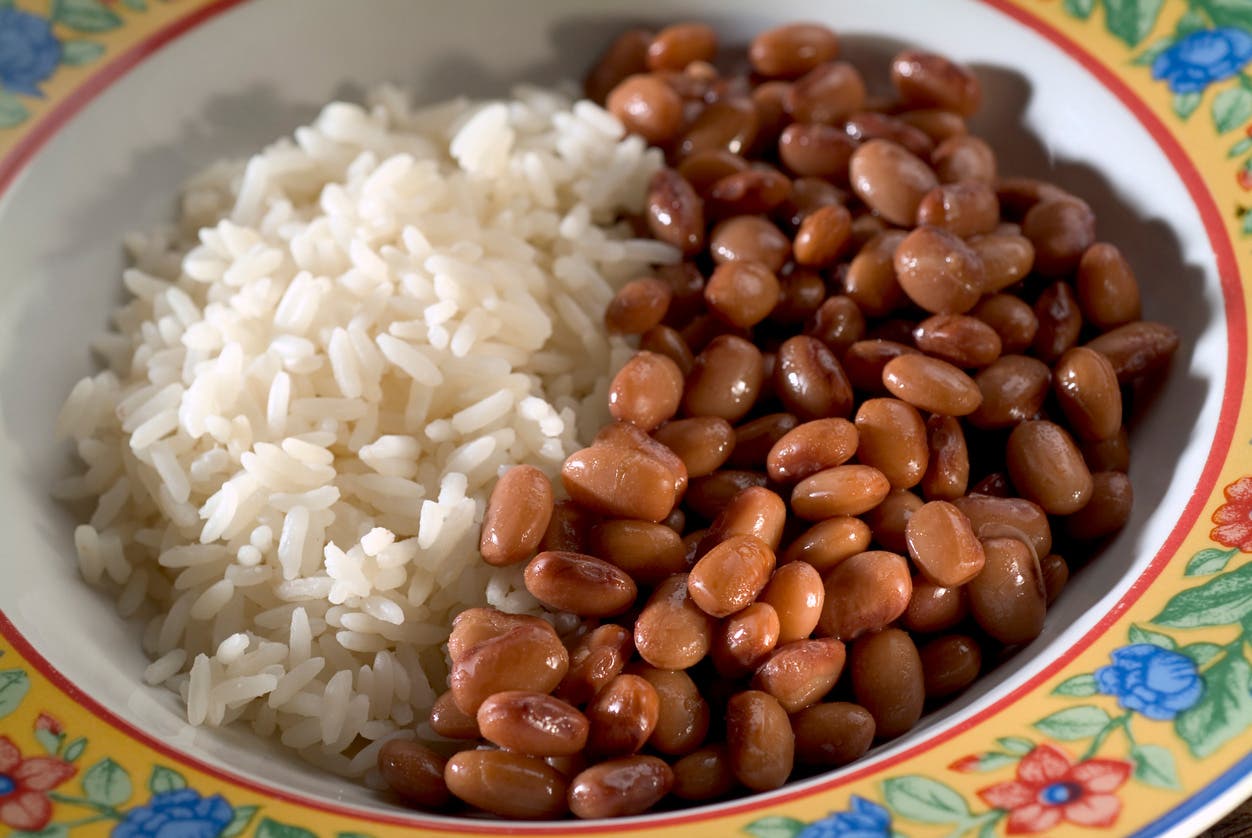
The Myth of Complementary Protein
Recently, I was teaching a nutrition class and describing the adequacy of plant-based diets to meet human nutritional needs. A woman raised her hand and stated, “I’ve read that because plant foods don’t contain all the essential amino acids that humans need, to be healthy we must either eat animal protein or combine certain plant foods with others in order to ensure that we get complete proteins.”
I was a little surprised to hear this, since this is one of the oldest myths related to vegetarianism and was disproved long ago. When I pointed this out, the woman identified herself as a medical resident and stated that her current textbook in human physiology states this and that in her classes, her professors have emphasized this point.
I was shocked. If myths like this abound not only in the general population but also in the medical community, how can anyone ever learn how to eat healthfully? It is important to correct this misinformation, because many people are afraid to follow healthful, plant-based, and/or total vegetarian (vegan) diets because they worry about “incomplete proteins” from plant sources.
How did this “incomplete protein” myth become so widespread?
No Small Misconception
The “incomplete protein” myth was inadvertently promoted and popularized in the 1971 book, Diet for a Small Planet, by Frances Moore Lappé. In it, the author stated that plant foods are deficient in some of the essential amino acids, so in order to be a healthy vegetarian, you needed to eat a combination of certain plant foods at the same time in order to get all of the essential amino acids in the right amounts. It was called the theory of “protein complementing.”
Lappé certainly meant no harm, and her mistake was somewhat understandable. She was not a nutritionist, physiologist, or medical doctor; she was a sociologist trying to end world hunger. She realized that converting vegetable protein into animal protein involved a lot of waste, and she calculated that if people ate just the plant protein, many more could be fed. In the tenth anniversary edition of her book (1981), she retracted her statement and basically said that in trying to end one myth—the inevitability of world hunger—she had created a second one, the myth of the need for “protein complementing.”
In this and later editions, she corrects her earlier mistake and clearly states that all plant foods typically consumed as sources of protein contain all the essential amino acids, and that humans are virtually certain of getting enough protein from plant sources if they consume sufficient calories.
Amino Acid Requirements
Where did the concept of essential amino acids come from and how was the minimum requirement for essential amino acids derived? In 1952, William Rose and his colleagues completed research to determine the human requirements for each of the eight essential amino acids. They set the minimum amino acid requirement equal to the greatest amount required by any single person in their study. Then to arrive at the recommended amino acid requirement, they simply doubled the minimum requirements. This recommended amount was considered a definite safe intake.
Today, if you calculate the amount of each essential amino acid provided by unprocessed plant foods and compare these values with those determined by Rose, you will find that any single whole natural plant food, or any combination of them, if eaten as one’s sole source of calories for a day, would provide all of the essential amino acids and not just the minimum requirements but far more than the recommended requirements.
Modern researchers know that it is virtually impossible to design a calorie-sufficient diet based on unprocessed whole natural plant foods that is deficient in any of the amino acids. (The only possible exception could be a diet based solely on fruit).
Pride and Prejudice
Unfortunately, the “incomplete protein” myth seems unwilling to die. In an October 2001 article on the hazards of high-protein diets in the medical journal Circulation, the Nutrition Committee of the American Heart Association wrote, “Although plant proteins form a large part of the human diet, most are deficient in one or more essential amino acids and are therefore regarded as incomplete proteins.”1 Oops!
Medical doctor and author John McDougall wrote to the editor pointing out the mistake. But in a stunning example of avoiding science for convenience, instead of acknowledging their error, Barbara Howard, Ph.D., head of the Nutrition Committee, replied on June 25, 2002 to Dr. McDougall’s letter, stating (without a single scientific reference) that the committee was correct and that “most [plant foods] are deficient in one or more essential amino acids.” Clearly, the committee did not want to be confused by the facts.
Maybe you are not surprised by this misconception in the medical community, but what about the vegetarian community?
Behind the Times
Believe it or not, an article in the September 2002 issue of Vegetarian Times made the same mistake. In a story titled “Amazing Aminos,” author Susan Belsinger incorrectly stated, “Incomplete proteins, which contain some but not all of the EAAs [essential amino acids], can be found in beans, legumes, grains, nuts and green leafy vegetables…. But because these foods do not contain all of the EAAs, vegetarians have to be smart about what they eat, consuming a combination of foods from the different food groups. This is called food combining.”
A Dangerous Myth
To wrongly suggest that people need to eat animal protein for proper nutrition encourages consumption of foods known to contribute to the incidence of heart disease, diabetes, obesity, many forms of cancer, and other common health problems.
This article on complementary protein was originally published on Jeff Novick's website.
1 Circulation 2001;104: 1869-74.

About the Author

About the Author
Jeff Novick, MS, RD
Join our mailing list
Get free recipes and the latest info on living a happy, healthy plant-based lifestyle.
By providing your email address, you consent to receive newsletter emails from Forks Over Knives. We value your privacy and will keep your email address safe. You may unsubscribe from our emails at any time.